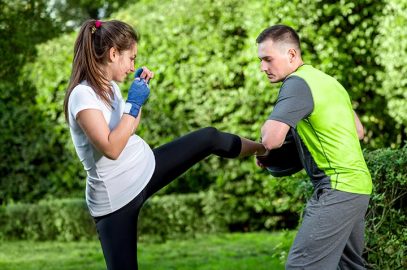Exercise you should do in pregnancy
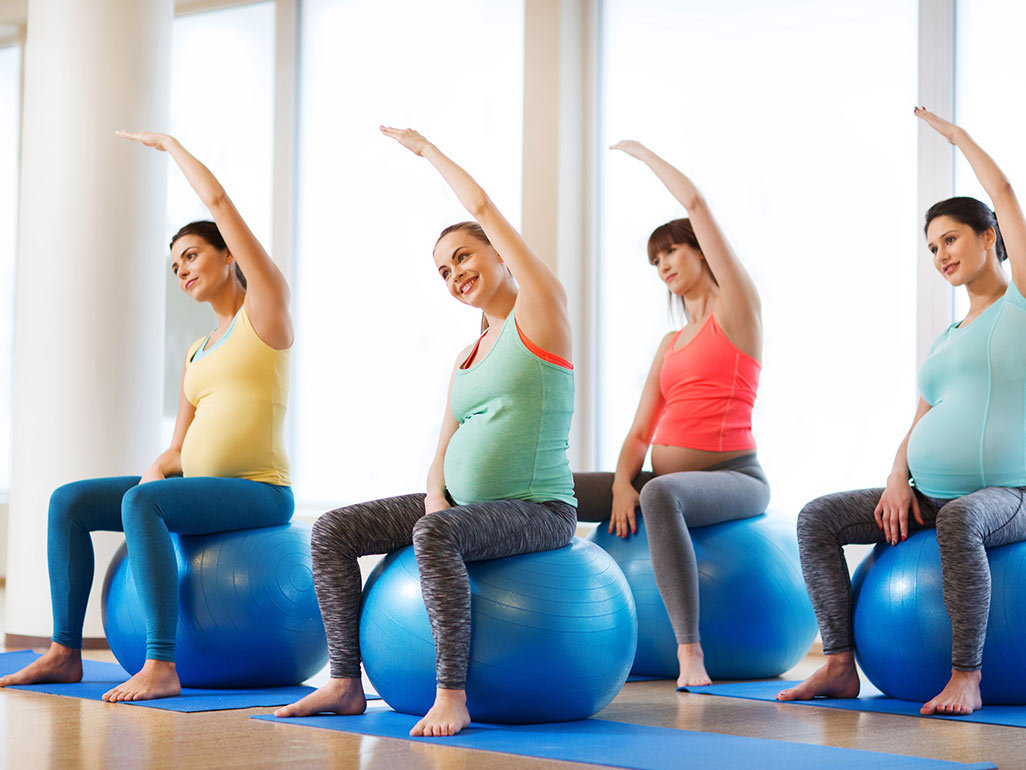
What exercise you should do in pregnancy
Most exercises are safe to perform during pregnancy, as long as you exercise with caution and do not overdo it. Tennis and racquetball are generally safe activities, but changes in balance during pregnancy may affect rapid movements. Other activities such as jogging can be done in moderation, especially if you were doing them before your pregnancy. You may want to choose exercises or activities that do not require great balance or coordination, especially later in pregnancy. if you exercised before you became pregnant, you can continue doing the same exercise now. The aim should be to keep your current level of fitness rather than trying to reach peak fitness. During pregnancy, exercise works wonders for both you and your baby. Here are the best and safest ways to break a sweat while you’re pregnant.
Your back aches, your ankles are swollen and you can’t sleep (let’s not even talk about the bloating and constipation!). If only there were something you could do to minimize the common symptoms of pregnancy. Turns out, there is: exercise is one of the most effective cures for the aches and pains of the expecting set.
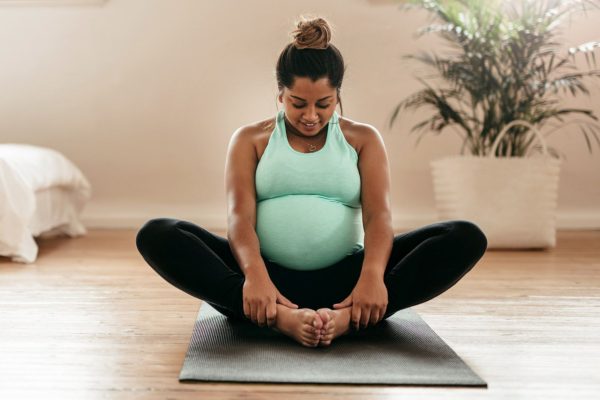
waking while pregnant offers benefits
for you and your baby. You’ll get a boost in mood, a decrease in many pregnancy symptoms and a quicker postpartum recovery. And your baby may enjoy a fitter heart, lower BMI and boost in brain health.
The American College of Obstetricians and Gynecologists (ACOG) suggests that expecting moms get at least 30 minutes or more of moderate exercise per day, most (if not all) days of the week.
What counts toward that 30 minutes? As far as your heart and general health are concerned, three 10-minute walks sprinkled throughout the day are just as beneficial as 30 minutes on the treadmill or bike at the gym. For that matter, even non-exercise activity — like 15 minutes of vacuuming and 15 minutes of light yard work — counts toward your daily goal.

Aerobic exercise
Aerobic exercise is any activity that makes your heart beat faster. This includes brisk walking, swimming and various classes that you do to music.
If you’re new to aerobic exercise, start off slowly and gradually build up to a maximum of four half-hour sessions a week.
If you are new to aerobics, tell the instructor that you are pregnant and start with just 15 minutes of continuous safe exercise three times a week. Increase this gradually to a maximum of four 30-minute sessions a week.
If you stick to low-impact routines you can usually continue for most of your pregnancy – as long as you feel comfortable. Low impact means always keeping at least one foot on the ground, for example, marching or knee raises instead of jogging or jumping. You’ll probably find that you naturally slow down a bit as you reach the last few months of your pregnancy.
Any kind of aerobic exercise during pregnancy will make you breathe harder and your heart will beat more quickly. Because your heart is beating faster, the blood goes around your body more quickly, which means that your muscles receive more oxygen.

Pilates
The aim of Pilates is to improve balance, strength, flexibility, and posture. It could help your body cope with carrying the extra weight of your growing baby, as well as prepare you for childbirth and recovering afterward.
Be careful not to over-exert yourself or stretch too much. And once you get to 16 weeks pregnant, avoid that way of exercise as you lay down.
As there’s not a lot of research on pregnancy Pilates, make sure you look for a specific pregnancy class or a one-to-one teacher who is trained to work with pregnant women.
When choosing a class, make sure the teacher is qualified and tell them how many weeks pregnant you are.
A teacher who is qualified to work with pregnant women should be able to adapt the exercises to suit your changing body at the stage of exercise.
If you already do non-pregnancy Pilates classes, tell your teacher you’re pregnant. Your teacher may be trained to work with women during pregnancy or might suggest a pregnancy class that would be better for you.
As with all exercise during pregnancy, if you feel any pain it’s important to stop straight away.
Running
If you were a runner or jogger before you got pregnant, it’s safe and healthy to continue during your pregnancy as long as you feel okay. Your baby will not be harmed by the impact or the movement. Running is a great aerobic workout.
If you were a regular runner before your pregnancy then it’s safe to continue for as long as you find it comfortable. However, if you’ve never run or jogged before, it’s best not to start running in pregnancy.

If you’re not used to running
Your joints won’t be used to the impact of running. But there are lots of low-impact exercises you can do, such as walking briskly . stationary cycling or swim . The aim should be to keep your current level of fitness in pregnancy, rather than training to get a personal best in a race. You also need to be aware of overheating, so steady running is preferable to high intensity interval training.

Don’t forget to warm up and cool down before and after exercising in pregnancy. If you are a professional athlete, talk to your trainer or coach about adapting your exercise routines for pregnancy.
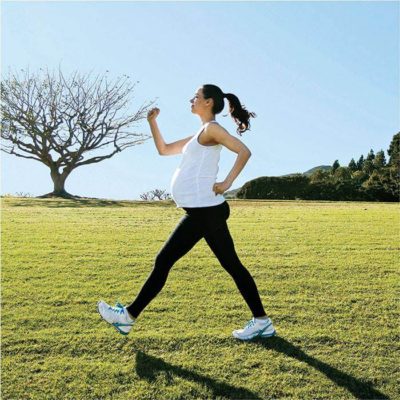
Ellipticals, stair climbers, treadmills and rowing machines
Ellipticals, stair climbers, treadmills and rowing machines are all good bets during pregnancy. Adjust speed, incline and tension to a level that’s comfortable for you. Keep in mind that as your pregnancy progresses, you may have a harder time with resistance (or not; listen to your body). With stair climbers and treadmills, you’ll need to pay closer attention to where you step to avoid stumbles.
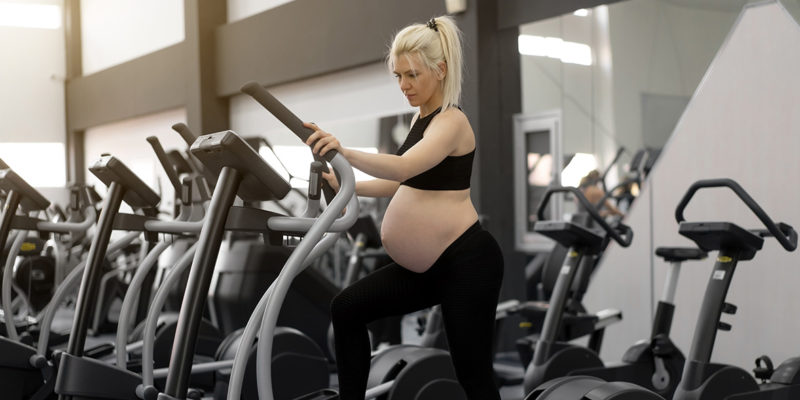
Indoor cycling
If you’ve been spinning for at least six months before pregnancy, you should be able to continue as long as you tone down the workout and have your practitioner’s okay. Indoor cycling can be great exercise, as it lets you pedal at your own pace without the risk of falling or putting pressure on your ankle and knee joints.
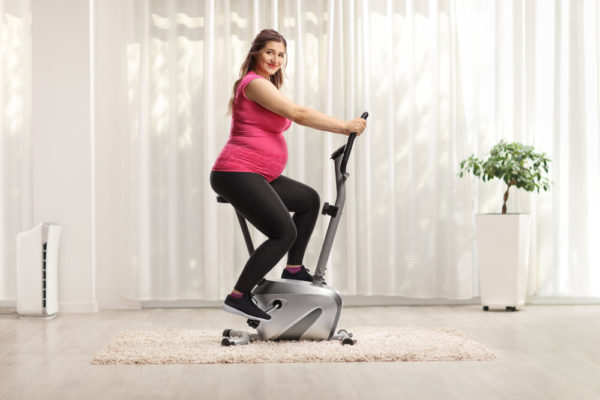
Kickboxing
With approval from a practitioner, many experienced expecting kickboxers can continue to get their kicks in the ring. You may find you aren’t quite as graceful or quick as you were pre-pregnancy, so be sure to start slowly. To avoid accidentally getting jabbed in the belly, leave two lengths of space between you and other kickboxers, and let everyone in the class know you’re pregnant (or find a class specifically for pregnant moms).
